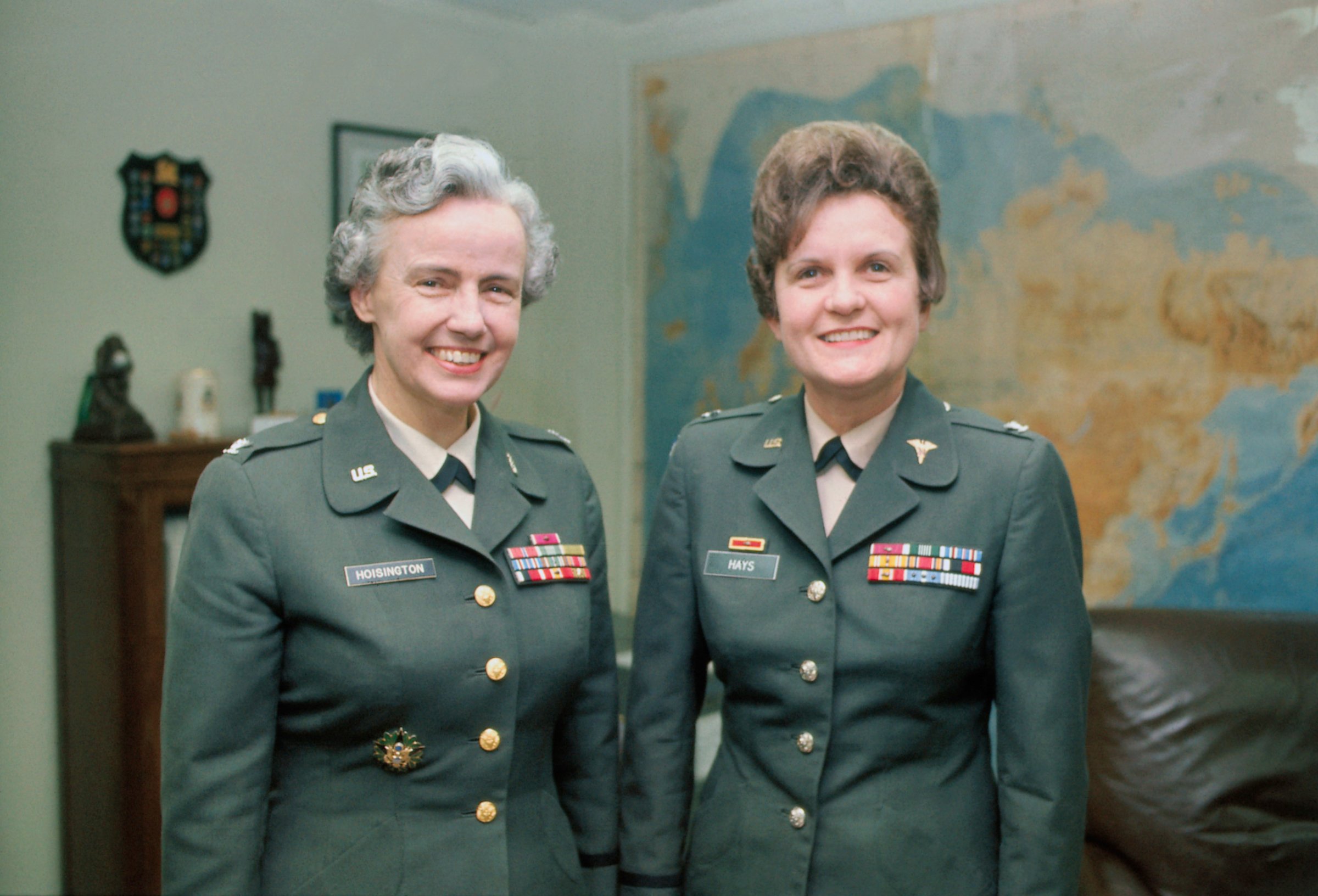
When Anna Mae McCabe Hays first joined the Army Nurse Corps in 1942, she was just one of many women who felt called to serve their country after the attack on Pearl Harbor—but in the decades that followed, her military career proved to be a singular one. This Thursday marks the 45th anniversary of her June 11, 1970, promotion to Brigadier General, the first time a woman ever wore the stars of a general officer in the U.S. Armed Forces.
“They do it in France, but U.S. generals caught kissing each other would be likely to lose their stars,” TIME reported the following week. “Not any more. Last week in Washington, Army Chief of Staff General William C. Westmoreland, observing the promotion of two WAC colonels, pronounced ‘a new protocol for congratulating lady generals,’ and promptly planted a brassy kiss on the mouths of WAC Brigadier Generals Elizabeth P. Hoisington, 51, and Anna Mae Hays, 50—the first women in U.S. Army history to attain the rank.” (Hoisington, who died in 2007, technically came second.)
What started as a wartime call to duty turned into a long and fruitful career for Hays. According to the Army Heritage Center Foundation, the New York state native deployed to India in January of 1943, to the town of Ledo in Assam. American soldiers there were building a road to China, and Hays was to care for them in the operating room. More than two years and 49,000 patients later, she was promoted to First Lieutenant.
While many of her colleagues left the service after WWII ended, Hays remained on active duty and deployed to the Korean War in 1950. She has described the conditions in the hospital there as worse than India in WWII, thanks to cold temperatures in the operating room and a lack of supplies. Hays went on to lead the emergency room at Walter Reed Army Medical Center; President Eisenhower was one notable patient. After a series of promotions over the years, Hays became Chief of the Army Nurse Corps in 1967. She upped recruitment efforts to send more nurses to the Vietnam War, and she visited the country several times during the conflict to assess the state of nursing.
Now 95, Hays has been retired since 1971.
Life for women in the army has changed significantly since Hays’ promotion—now, there are female four-star generals, and most combat positions will be available to women by January, 2016. But today’s women have Hays to thank for plenty of advances: her recommendations led to policy changes like no longer automatically discharging married officers for becoming pregnant or limiting who could be appointed to the Army Nurse Corps Reserve based on the age of their dependents. By any standards, those advancements deserve a salute.
More Must-Reads From TIME
- The 100 Most Influential People of 2024
- Coco Gauff Is Playing for Herself Now
- Scenes From Pro-Palestinian Encampments Across U.S. Universities
- 6 Compliments That Land Every Time
- If You're Dating Right Now , You're Brave: Column
- The AI That Could Heal a Divided Internet
- Fallout Is a Brilliant Model for the Future of Video Game Adaptations
- Want Weekly Recs on What to Watch, Read, and More? Sign Up for Worth Your Time
Contact us at letters@time.com